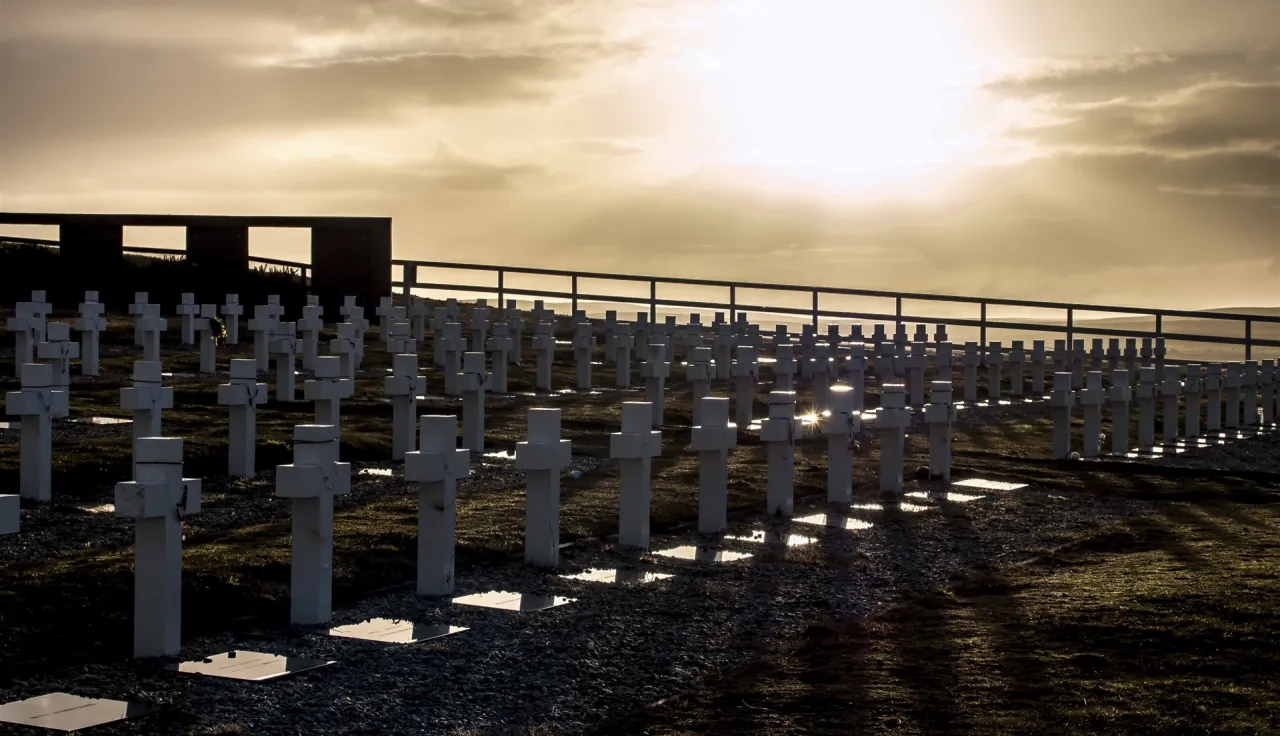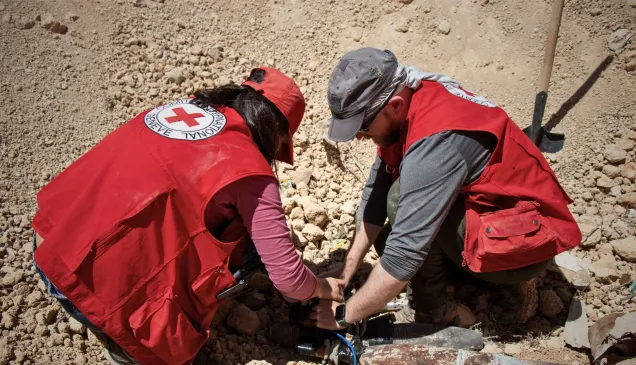ICRC forensic team identifies the remains of six Argentine soldiers buried in the Falkland Islands (Malvinas)

Geneva (ICRC) - The International Committee of the Red Cross (ICRC) has identified the remains of six Argentine soldiers buried on the Falkland Islands (Malvinas). Their families were informed today, bringing to an end nearly 40 years of uncertainty from not knowing what happened to their loved ones.
The Second Humanitarian Project Plan (HPP 2) involved the exhumation of human remains belonging to a number of individuals located within one grave known as C.1.10 at Darwin cemetery. The ICRC team excavated this grave and found the remains of the six individuals. Samples of their remains were analysed by the Forensic Genetic Laboratory of the Argentine Forensic Anthropology Team (EAAF) for identification. The remains will now be reburied according to the wishes of each family.
The team also assessed an area called Teal Inlet/Caleta Trullo to investigate whether there were human remains of Argentine soldiers, but nothing was found.
"We were able to identify six individuals and finally give answers to their families after all these years. Every family deserves to know what happened to their loved one, and it's a truly humbling experience to be part of that process and bring their uncertainty to an end," said Laurent Corbaz, ICRC's HPP2 project manager. "We would also like to thank everyone who made this project possible and who supported it along the way, both in the islands and elsewhere."
"The mission was a success despite some very challenging weather conditions. Identification was possible through the application of international forensics standards and taking a multidisciplinary approach. This is what will hopefully enable families to finally have some closure," said Luis Bernardo Fondebrider, head of the ICRC's forensic unit.
This work followed on from the First Humanitarian Project Plan (HPP 1), which led to the exhumation of the remains of 122 Argentine soldiers at Darwin cemetery. Following DNA sample testing with the families, 115 soldiers have since been identified. The HPP 1 was the first such project with a specific joint mandate from two States, Argentina and the UK, that had been on opposite sides in an armed conflict.
Based on the United Nations Secretariat Editorial Directive ST/CS/SER.A/42 of 3 August 1999, the nomenclature of this document is the following: "Falkland Islands (Malvinas)".
For further information, please contact:
Diogo Alcântara, ICRC, Buenos Aires, +55 61 98248 7600
Francesca Dobson Suarez, ICRC, London, +44 (0) 7590 832 523
Crystal Wells, ICRC, Geneva, +41 77 963 75 74



